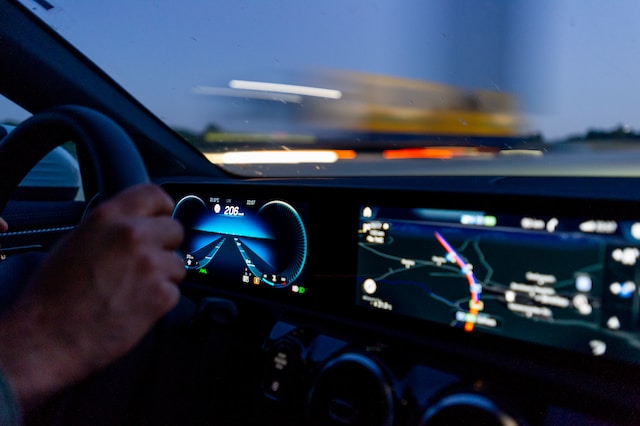Autonomous vehicles have been a topic of fascination and discussion for years, appearing in science fiction movies and books as the ultimate mode of transportation. But now, with technological advancements, they are becoming a reality. As we move closer to a world where self-driving cars rule the roads, it’s important to consider how this revolutionary
Autonomous vehicles have been a topic of fascination and discussion for years, appearing in science fiction movies and books as the ultimate mode of transportation. But now, with technological advancements, they are becoming a reality. As we move closer to a world where self-driving cars rule the roads, it’s important to consider how this revolutionary technology will impact our daily lives beyond just getting us from point A to point B. In this blog post, we’ll explore the potential effects of autonomous vehicles on transportation, society and the economy – so buckle up and get ready for an exciting ride!
What is autonomous vehicle technology?
Autonomous vehicle technology refers to the development of cars that can operate without human intervention. These vehicles use a combination of advanced sensors, software and machine learning algorithms to navigate roads, respond to traffic signals and avoid obstacles.
One key feature of autonomous vehicles is their ability to communicate with other cars on the road. This enables them to coordinate movements in real-time, reducing congestion and improving safety.
Autonomous vehicles are designed to be much safer than traditional vehicles because they eliminate driver error – which is responsible for the vast majority of accidents on our roads today. In addition, self-driving cars can react much faster than humans, making them less likely to be involved in collisions.
Another significant benefit of autonomous vehicle technology is its potential impact on the environment. Self-driving cars could reduce emissions by optimizing travel routes and minimizing idling time in traffic jams.
Autonomous vehicle technology has enormous potential for transforming transportation as we know it – from improving safety and efficiency on our roads to reducing environmental impacts.
How will autonomous vehicles change transportation?
Autonomous vehicles are set to change the face of transportation in a big way. One of the biggest changes will be the reduction in traffic congestion. Since autonomous vehicles can communicate with each other and make real-time decisions, they can optimize routes, reduce speed fluctuations, and avoid accidents. This means less time spent idling in traffic for commuters.
Another significant impact is on public transportation systems. Autonomous buses or trains could provide more flexible service since they do not require fixed rail lines or bus routes. They could also operate 24/7 without taking breaks like human drivers would need to.
The use of autonomous vehicles may also lead to fewer cars on the road as people start sharing rides rather than owning their own vehicle. This not only reduces congestion but also has environmental benefits by reducing carbon emissions from internal combustion engines.
In addition, autonomous vehicles have potential impacts beyond just commuting trips: they could revolutionize shipping and logistics industries by enabling continuous operation of delivery trucks and reducing turnaround times at distribution centers.
It’s clear that we are standing at the precipice of a major shift in how we think about transportation – one that promises greater efficiency, reduced emissions and improved safety for all who travel on our roads!
What are the societal implications of autonomous vehicles?
The development and widespread adoption of autonomous vehicles will have significant societal implications. One potential positive impact is the reduction of traffic accidents, as most crashes are caused by human error. This could lead to fewer injuries and fatalities on our roads.
Another possible benefit is increased accessibility for individuals who cannot drive, such as those with disabilities or the elderly. With self-driving cars, these individuals would be able to travel independently without relying on others for transportation.
However, there are also concerns about job displacement in industries such as trucking and taxi services. If autonomous vehicles become the norm, it could result in a loss of employment opportunities for drivers.
Additionally, there may be challenges around privacy and security issues related to data collection from sensors used in autonomous vehicles. It will be important to ensure that proper safeguards are put in place to protect users’ personal information.
While there are both benefits and challenges associated with autonomous vehicle technology from a societal perspective, it will be critical to carefully consider these implications as we move forward towards a future where self-driving cars become more prevalent on our roads.
How will autonomous vehicles impact the economy?
As we have seen throughout this article, the impact of autonomous vehicles on transportation and society is immense. But what about the economy?
Firstly, it’s important to note that the widespread adoption of autonomous vehicles will create new jobs in industries such as manufacturing and maintenance. On the other hand, it could also lead to job losses in areas such as truck driving.
The increased efficiency of autonomous vehicle technology has the potential to significantly reduce transportation costs for both individuals and businesses. This could result in lower prices for goods and services across many industries.
Additionally, with improved traffic flow and reduced congestion on roads, travel times could be decreased which would increase productivity levels for workers.
However, there are also potential negative economic impacts such as a reduction in revenue from speeding tickets or parking violations. Governments may need to find new sources of revenue if these traditional methods decrease significantly.
While there are certainly challenges left to overcome before fully integrating autonomous vehicles into our daily lives, their impact on transportation systems -and by extension- our society and economy cannot be ignored. It will be interesting to see how they continue to shape our world moving forward.

















Leave a Comment
Your email address will not be published. Required fields are marked with *